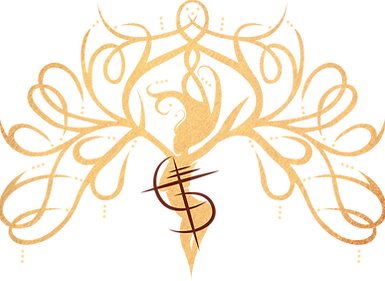How do I know if I have Trauma?
- Elyse Hof

- Jul 24, 2025
- 3 min read
Updated: Aug 4, 2025
Trauma – it’s can be such a loaded word. It can bring with it such an intensity to those first coming into contact with it, or maybe it feels like a complete understanding and landing to what you know you've experienced and still hold.
These days, the word trauma is everywhere. It can feel quite loaded and bring with it an intensity. Or it can feel like a coming home and a resonance that may have never been felt.
It has been used to describe anything from a bad haircut to an awkward conversation. While language is always evolving, it’s important to remember that trauma isn’t just a dramatic moment or a tough experience. Trauma isn’t about what happened, it’s about what happened in the body. It refers to the impact an experience has on the nervous system, especially when it overwhelms a person’s ability to cope or integrate.
What might seem small or insignificant to one person can be deeply dysregulating to another, depending on their past, their body’s capacity, and their sense of safety. When we toss the word around casually, we risk diluting its meaning, and we risk not seeing or honouring the real, embodied impact that people with trauma live with every day.
Physiologically, when a body is unable to complete its own stress cycle, it leaves it in a state of unrest and active dis-ease.
This incompletion can leave an imprint left within you from losing your mum when supermarket shopping when you were 4yrs old, you could have experienced a car accident where you were left physically unmarked but your nervous system has never recovered fully, you could have been bullied as a child, you could have had a really impactful birth.
There’s no limit to the WHAT that can impact your system and the length of time it affects your body and nervous system. And just because you think it sounds like it’s not big enough to be a traumatic event, doesnt mean it isnt 'Trauma' - the impact left in your body.
Trauma doesn’t just live in the past - it lives in the body, shaping how we feel, react, and relate in the present.
When something overwhelms us and we can’t process it at the time, the experience often gets stored not as a memory, but as a somatic imprint : a tightening in the chest, a flinch in the belly, a dissociation in the eyes.
This unresolved energy is held in the body and the nervous system, and over time, it weaves itself into the subconscious mind. We begin to form beliefs and protective patterns around the pain: “It’s not safe to speak up,” “I’m too much,” “I can’t trust anyone.”
These aren’t just thoughts, they’re survival strategies the body clings to. The energy of trauma can loop through our thoughts, emotions, and behaviours until we bring it into conscious awareness and move it through the body.
True healing comes not from talk therapy alone, but from gently unwinding these stuck patterns from within the tissues, in the breath, in the stories we carry and creating new pathways for safety, presence, and connection.
It’s a really good to notice, do you hold your emotions in? Do you feel and release them in real time? Do you have disproportionate amounts of charge when you’re triggered?
Do you have a Chronic Illness? Fears? Limiting Beliefs?
Understanding and working on your inner landscape really helps to optimise your experience in your body, to feel safe and to be in the fullness of your SELF.












Comments